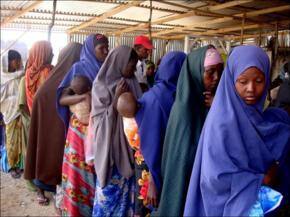Wellington receives refugee recommendations at UNHRC

Wellington refugee organisations will be among the first in New Zealand to hear recommendations received at a United Nations High Commissioner for Refugees (UNHRC) international meeting.
The Tripartite Consultations are held annually in Geneva and bring together government representatives, NGOs and the refugee voice from around the world. Dr Arif Saeid, Vice President of the Refugee Council of New Zealand is travelling around the country to provide direct feedback to former refugee communities on the recent UNHCR Tripartite consultations in Geneva.
Dr Saeid says, “It is important that for the first time, comprehensive feedback and consultation from the UNHCR meetings comes back from those who attended directly to grassroots community groups, as well as government, NGO’s and advocates. For too long people have been attending without accountability for reporting back to the refugee sector and being responsible for feedback both ways. RCNZ is now addressing this.”
The forum in Wellington was held on September 17 at the Changemakers Refugee Forum office at Webb Street. Sessions were held at Aotea Centre at the Diversity Forum on 19 August, and on 7 September at the Christchurch Migrant Centre, organised through Christchurch Resettlement Services.
The Annual Tripartite Consultations on Resettlement (ATCR) started in 1995. This process provides an important vehicle for strengthened cooperation between governments, NGOs and UNHCR in the area of resettlement policy and practice.
An important outcome is the tripartite relationship itself, which promotes transparency and stimulates the development of new and innovative ways to solve problems and to combine resources to improve resettlement outcomes for refugees. Dr Saeid arrived in New Zealand as a refugee from Afghanistan with his family in 2000. Forced to flee Afghanistan in 1999 with their four children, they lived in Pakistan as refugees until resettling in New Zealand. Unable to continue practice of medicine in NZ, Dr Saeid retrained in counselling at the University of Auckland.
Wellington refugee organisations will be among the first in New Zealand to hear recommendations received at a United Nations High Commissioner for Refugees (UNHRC) international meeting.
The Tripartite Consultations are held annually in Geneva and bring together government representatives, NGOs...
Wellington refugee organisations will be among the first in New Zealand to hear recommendations received at a United Nations High Commissioner for Refugees (UNHRC) international meeting.
The Tripartite Consultations are held annually in Geneva and bring together government representatives, NGOs and the refugee voice from around the world. Dr Arif Saeid, Vice President of the Refugee Council of New Zealand is travelling around the country to provide direct feedback to former refugee communities on the recent UNHCR Tripartite consultations in Geneva.
Dr Saeid says, “It is important that for the first time, comprehensive feedback and consultation from the UNHCR meetings comes back from those who attended directly to grassroots community groups, as well as government, NGO’s and advocates. For too long people have been attending without accountability for reporting back to the refugee sector and being responsible for feedback both ways. RCNZ is now addressing this.”
The forum in Wellington was held on September 17 at the Changemakers Refugee Forum office at Webb Street. Sessions were held at Aotea Centre at the Diversity Forum on 19 August, and on 7 September at the Christchurch Migrant Centre, organised through Christchurch Resettlement Services.
The Annual Tripartite Consultations on Resettlement (ATCR) started in 1995. This process provides an important vehicle for strengthened cooperation between governments, NGOs and UNHCR in the area of resettlement policy and practice.
An important outcome is the tripartite relationship itself, which promotes transparency and stimulates the development of new and innovative ways to solve problems and to combine resources to improve resettlement outcomes for refugees. Dr Saeid arrived in New Zealand as a refugee from Afghanistan with his family in 2000. Forced to flee Afghanistan in 1999 with their four children, they lived in Pakistan as refugees until resettling in New Zealand. Unable to continue practice of medicine in NZ, Dr Saeid retrained in counselling at the University of Auckland.









Leave a Comment